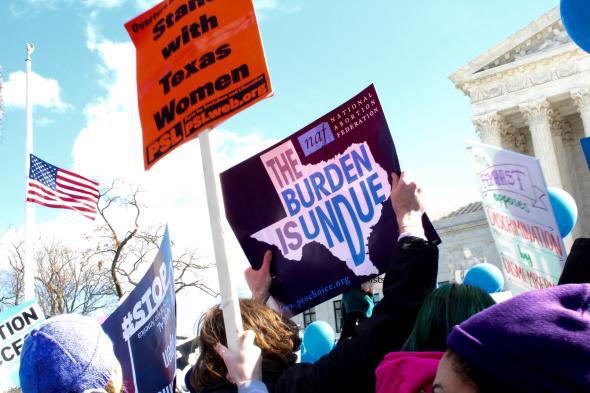The Supreme Court voted on Friday to put a temporary hold on a Louisiana law that would have closed all but one abortion clinic in the state. The 2014 law, which requires abortion providers to have admitting privileges at hospitals, mirrors one of the two parts of contested Texas law HB2, on which the Supreme Court heard arguments this week. Friday’s decision to block enforcement of Louisiana’s law could be a death knell for HB2, which also requires abortion clinics to adopt the strict building conditions of an ambulatory surgical center.
Clarence Thomas was the lone dissenter in Friday’s Louisiana decision, which reversed a federal appeals court’s February 2016 order that the state be allowed to enforce the law while it was making its way through the courts. After Friday’s ruling, two clinics that closed after that February order will reopen. Another, in Shreveport, which would have likely closed if the law was upheld, will continue to provide abortion care.
Friday’s Supreme Court decision cites a previous ruling that ordered a stay on the surgical-center part of the Texas law. That could bode well for the outcome of Whole Woman’s Health v. Hellerstedt, which the justices put to a vote earlier on Friday—the two very similar laws both reached the court through the Fifth Circuit Court of Appeals. But Anthony Kennedy, who holds the fate of HB2 in his hands as the possible fifth vote on the side of of Texas abortion clinics, was the swing vote in the 2013 decision that allowed Texas to enforce its version of the admitting privileges law while it was being challenged in the courts. Since the Texas law went into effect, more than half of the state’s abortion clinics have closed; if the Supreme Court allows the surgical-center portion into play, all but 10 would remain.
